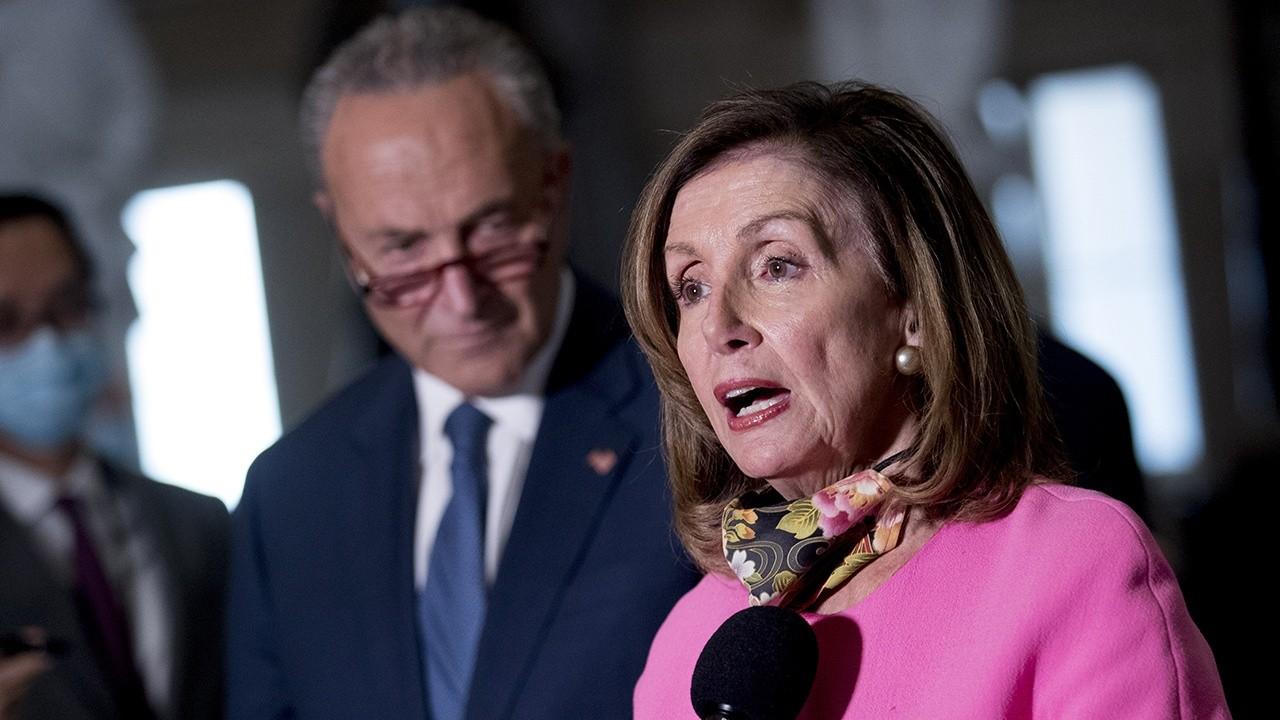Trump’s payroll tax holiday won’t hurt Social Security, Mnuchin says
Payroll taxes fund Medicare and Social Security
President Trump’s payroll tax deferral plan will not damage the Social Security trust fund, Treasury Secretary Steven Mnuchin said, even though it will give businesses and employees a break from paying taxes that fund the popular program.
“We’re going to create a level of certainty for employers that want to participate – we can’t force people to participate but I think many small businesses will do this and pass on the benefits,” Mnuchin told FOX Business on Wednesday. “[Trump will] go back to Congress when he wins the election and ask Congress to have this money forgiven and have the Social Security trust fund fully topped up so that in no way does this impact Social Security.”
Trump has proposed implementing deferrals beginning on Sept.1 through Dec. 31 for employees whose biweekly wages are less than $4,000, on a pre-tax basis.
TRUMP’S PAYROLL TAX HOLIDAY A ‘SUBSTANTIAL’ LIFT FOR BUSINESSES AS TERMS REMAIN UNCLEAR
The payroll tax is paid separately from federal income taxes and funds Social Security and Medicare. Employers and employees each pay 6.2 percent for Social Security and 1.45 percent for Medicare, and an additional 0.9 percent is levied on the highest earners.
It is unclear what Mnuchin means when he said Congress would keep the trust fund “topped up,” but experts have warned that reserves could be depleted earlier than expected as a result of the financial effects of the pandemic.
An analysis conducted by researchers at the Penn Wharton Budget Model showed that Social Security is at risk of running out of funds as many as four years earlier than anticipated – in 2032 – depending on the shape of the U.S. economic recovery. Prior to the pandemic, the group had a 2036 estimate for the OASDI trust fund.
A separate analysis estimated that Social Security’s funding may run dry as soon as 2029.
CORONAVIRUS PUTS FULL SOCIAL SECURITY BENEFITS AT RISK YEARS EARLIER THAN EXPECTED, RESEARCHERS SAY
A decline in payroll taxes is expected to be primarily responsible for draining Social Security’s coffers more quickly, given the dramatic rise in unemployment numbers. Unemployment compensation is not subject to payroll taxes. Deferring, and forgiving, payroll taxes may accelerate the timeline.
Low interest rates also affect reserves, as they reduce income on bonds held by the fund.
CLICK HERE TO READ MORE ON FOX BUSINESS
Lawmakers are aware of how the pandemic may negatively affect the reserves of Social Security and Medicare, two popular programs that are relied upon by 107 million Americans in total.
In the GOP-sponsored HEALS Act, Sen. Mitt Romney introduced a provision that would help evaluate proposals to protect and strengthen the trust funds. A report would need to be delivered to Congress by the Treasury in Jan. 2021, after which “rescue committees” would be set up to create plans to shore up the solvency of the programs.




















